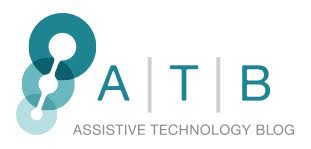Speech Accessibility Project Recruiting US And Puerto Rican Adults For Speech Samples
The Speech Accessibility Project, backed by tech giants like Amazon, Apple, Google, Meta, and Microsoft, and conducted by the University of Illinois Urbana-Champaign, is actively recruiting U.S. and Puerto Rican adults with Parkinson’s Disease, Cerebral Palsy (CP), Down Syndrome, ALS, and Stroke or Aphasia. This initiative aims to enhance voice recognition technologies for people with diverse speech patterns and disabilities. Participants’ speech samples are recorded securely by the researchers at UIUC’s Beckman Institute, ensuring privacy protection. The project has already contributed over 100,000 speech samples to the involved Big Tech companies.
Individuals with CP, like Spencer Hadbavny, face challenges in using technology due to mobility limitations and speech impairments. The Speech Accessibility Project offers them an opportunity to actively contribute to the development of more inclusive voice recognition technology. Their participation helps in gathering valuable data that can be used to improve communication technologies for people with CP. Clarion Mendes, a clinical assistant professor and a team member of the project, highlights the significance of including CP in the project, emphasizing how it can enhance the quality of life by easing communication barriers.
The project’s roots can be traced back to 2008, with the creation of the UA-Speech corpus, a database of voice recordings from people with disabilities in Champaign-Urbana, led by Mark Hasegawa-Johnson. This database became a benchmark in the field for research on dysarthria, a condition often associated with CP that affects speech clarity. The Speech Accessibility Project now expands to a broader demographic, including participants from various U.S. states and Puerto Rico. Participants are compensated for their contributions, and the overarching goal is to ensure that future speech applications are well-acquainted with the speech patterns of people with CP, thereby improving accessibility and usability.
Head to the Speech Accessibility Project website to sign up.
Source: Speech Accessibility Project, Newswise
ChatGPT, a potential tool for increased accessibility, was used as a writing aid for this blog post. Do you think this is an appropriate use of chatGPT? Why or why not? Let me know!


Leave a comment